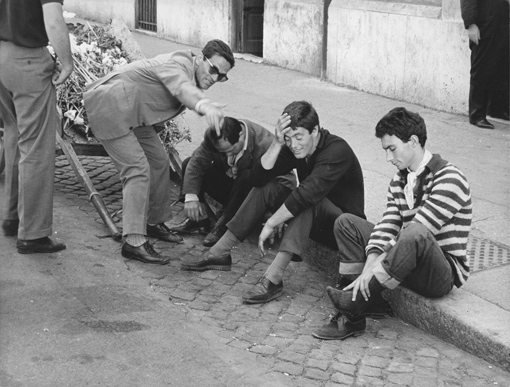Accattone
It is a strange and disorienting vision, distinctly odd and eccentric as sociology, luminescent as myth and a primal form of cinema. The sunlight of Rome’s slum periphery, beating for long tracking shots as Accattone wanders towards his women, his gang, his dreams, his death, carries an almost overwhelming charge. All the more reason to welcome the new high-definition transfer with a corrected aspect ratio. It claims to be the first Blu-ray edition anywhere.
Bundled in with Accattone is an accompanying film that is almost as striking, but much less well known. In 1963, Pasolini made his first documentary, Comizi d’amore or ‘Love Gatherings’, an enquiry that is part anthropological part psychoanalytical, into the attitudes of early 1960s Italians towards the taboo subject of sex. Pasolini travelled widely, from Sicilian villages to Milanese dance halls to the Bologna FC football team, pushing his microphone at unassuming men, women and children asking ‘where babies come from?’, ‘whether they’ve heard of homosexuality?’, ‘whether it’s better to be a good lover or a good father?’. In between, a handful of intellectuals – including a leading Freudian and the major novelist of the day (and Pasolini’s friend), Alberto Moravia – opine pompously or knowingly on their nation’s ignorance and repressions. The portrait that emerges, through heavy doses of embarrassment and awkward dialogue, is a fascinating one of a society fractured and lost in the face of its hyper-accelerated lunge into modernity. Pasolini was one its great contrarian chroniclers.
Robert S. C. Gordon
 Learning on Screen
Learning on Screen
